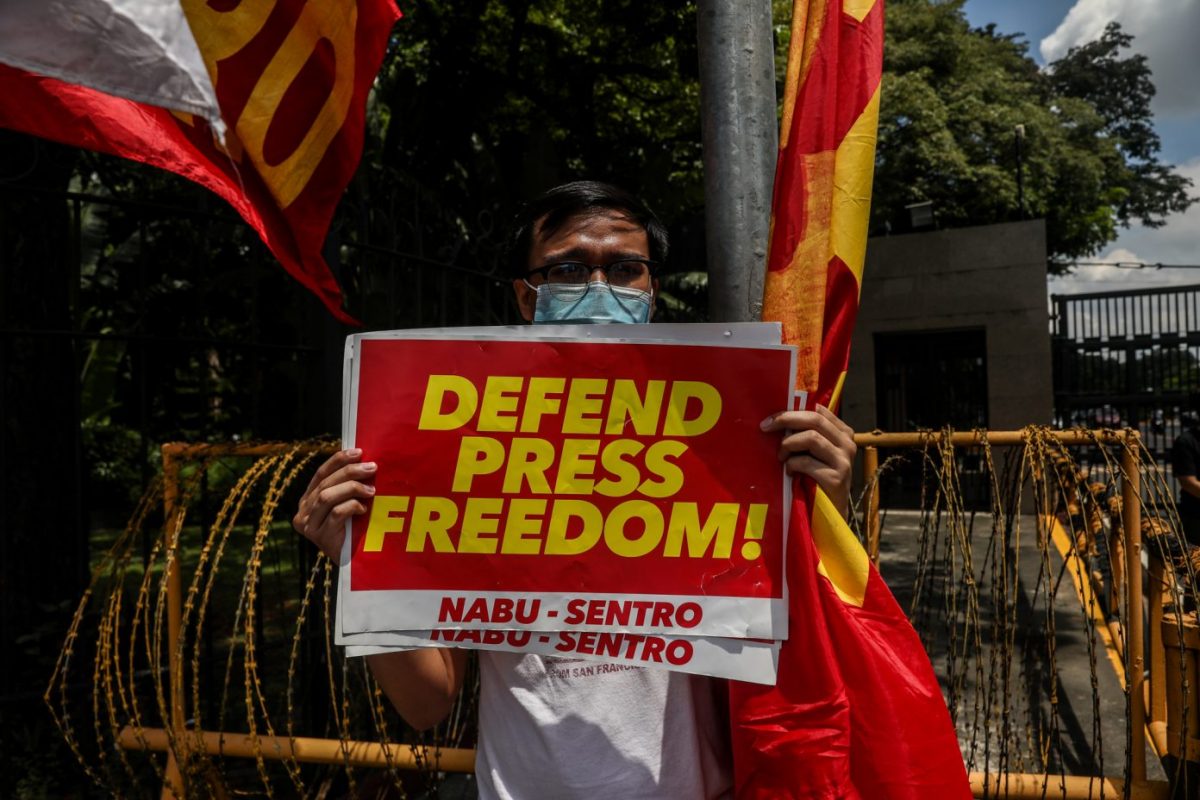In celebration of Press Freedom Day
Press freedom in the Philippines suffers from an interminable crisis.
Since the ouster of dictator Ferdinand Marcos to the tokhang regime of Rodrigo Duterte, roughly 188 journalists have been gunned down, many in the line of duty. Under Marcos, 34 had been killed.
The latest victim was the former chairman of the National Union of Journalists of the Philippines in Capiz province, John Heredia, who was gunned down by motorcycle-riding assailants in the early afternoon of May 2, 2021. He died on the way to the hospital.
The wounds inflicted on journalists and the profession have no chance of ever healing, at least not in the near future. Impunity persists. It denies justice to writers, local publishers and journalists who’ve been liquidated since 2016, the year Duterte rose to the presidency.
A little over 20 journalists had mowed down under the incumbent regime. The killers are no closer to being identified than when they first pulled the trigger. A couple of journalists survived the attempt on their lives. Some were killed in cold blood as their family and children looked on.
A closer study would reveal that the killers lay in wait at the moment when journalists are most vulnerable—while they’re coming home from work, or in some cases, when traveling with members of their family. Any chance of this subsiding or stopping under Duterte is an idea with absolutely no hope of coming true.
For some hindsight: this regime’s hostility against the press first reared its head thirty days before Duterte’s inaugural on June 30, 2016. In a post-election press conference, the then president-elect reportedly said that journalists—those he hinted as “corrupt”—are “not exempted from assassinations.”
It was the start of a systematic campaign which led to the filing of cyber-libel and tax evasion cases against Rappler’s chief executive officer Maria Ressa, the banning of Rappler to cover presidential events, even entering Palace grounds, and the creation of a “matrix” identifying journalists as part of a plot to overthrow the President.
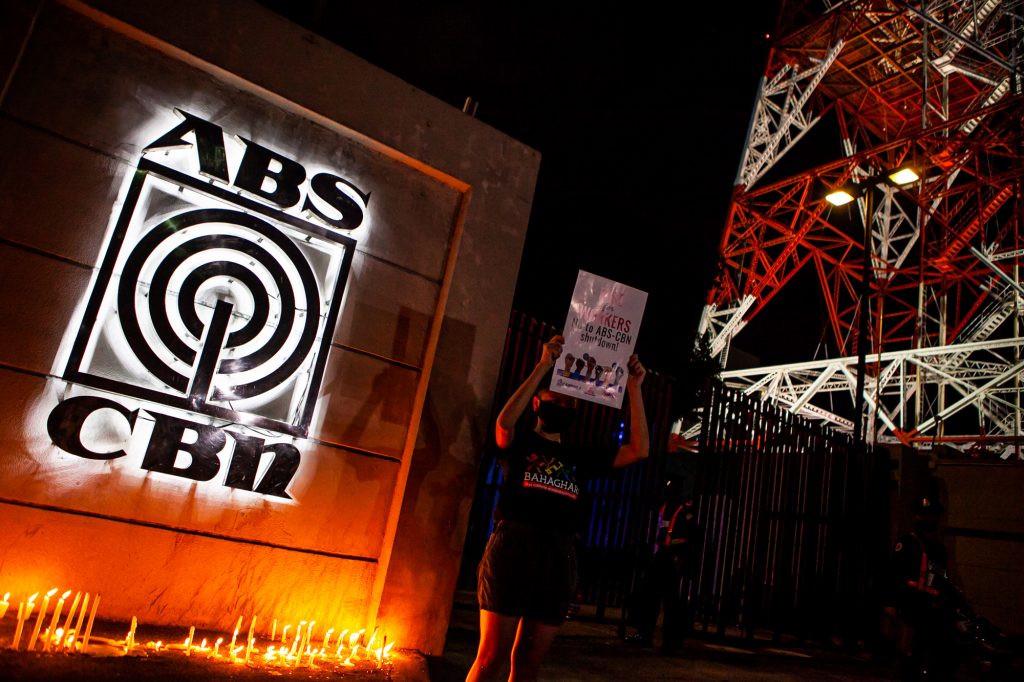
Then came the eventual shutdown of the country’s largest network ABS-CBN, the abrogation of the accord signed between the Department of National Defense and the University of the Philippines regarding the presence of military personnel inside the campus, the red-tagging of the National Union of Journalists of the Philippines and other news organizations, which later included colleges and universities, and the arrest, imprisonment and assassination of several media workers.
If you recall, after the Manila Times published the matrix accusing journalists of plotting against the president, the paper’s former managing editor Felipe F. Salvosa II tendered his resignation because he opposed the printing of the story. The matrix story was written by The Manila Times chairman emeritus, Dante Ang, whose friendship with Duterte is no secret. No sooner than it came out, the Armed Forces top brass denied Ang’s claims.
The antagonism against the press later spilled over to and from the corporate scaffold where, in July 30, 2018, journalists Hiyasmin Saturay, Eric Tandoc, Avon Ang, Psalty Caluza, and Jon Bonifacio of the local AlterMidya Network of independent media bureaus, were physically assaulted and detained while covering the dispersal of a worker’s strike against food condiment producer, NutriAsia.
The passing into law of the Bayanihan to Heal as One Act in response to the COVID-19 pandemic, the Anti-Terrorism Law, and the campaign to red-tag critics, journalists, and activists initiated by Lt. Gen. Antonio Parlade, spokesperson of the National Task Force to End Local Communist Armed Conflict (NTF-ELCAC), only exacerbated what was already a life-threatening climate for critical voices.
As a result, journalists and activists were hauled into prison after a slew of raids conducted by the Philippine National Police (PNP).
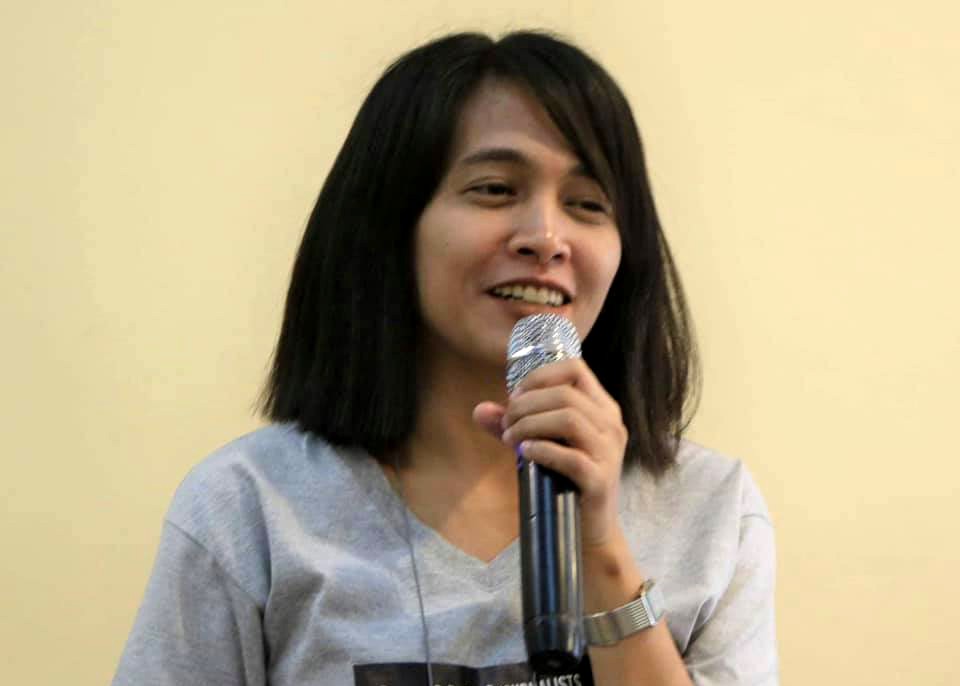
Lady Ann Salem, editor of Manila Today, was one of those arrested, detained and charged with “firearms possession” following police operations conducted on the celebration of Human Rights Day on Dec. 10, 2020. Altermidya Network argued that it was more of an abduction than an arrest. Salem was later released on March 5, 2021, a month after the court issued a dismissal of the charges early February.
Journalist Frenchie Mae Cumpio, on the other hand, remains in prison as of this writing. Last Febuary, she celebrated her 22nd birthday behind bars. Both journalists are in their early twenties.
Even campus newshounds weren’t spared the trauma and indignity of being intimidated for airing their opinion or exposing shenanigans within the national and local government—online and offline. As a way to bully online critics, as early as April 2020, the National Bureau of Investigations has been sending out subpoenas to netizens allegedly spreading “false information” about COVID-19.
Cebu governor called out the editor-in-chief of Today’s Carolinian, the official publication of the University of San Carlos (USC), after publishing a story titled, “The Governor is not above the Constitution.” The College Editor’s Guild of the Philippines (CEGP) believes it was a way to scare the student.
The editor-in-chief of the University of the East’s publication, Dawn, was likewise red-tagged and threatened for publishing critical pieces against the administration’s botched response to the pandemic.
Former president of the CEGP, Jose Mari Callueng, described how the administration muzzles and intimidates campus journalists in an interview I had with him last year:
“Under the term of President Duterte, one of the glaring cases of campus press freedom violation is the withholding the release of the printed magazines of a student paper with contents criticizing the government’s war on drugs. Although this has been brought to the attention of the Commission on Higher Education (CHED) when I was still president of the Guild, this has not been acted upon by the alter-ego of the president. This tells us that protecting the freedom of the press, even in campuses, is not a priority of this government.”
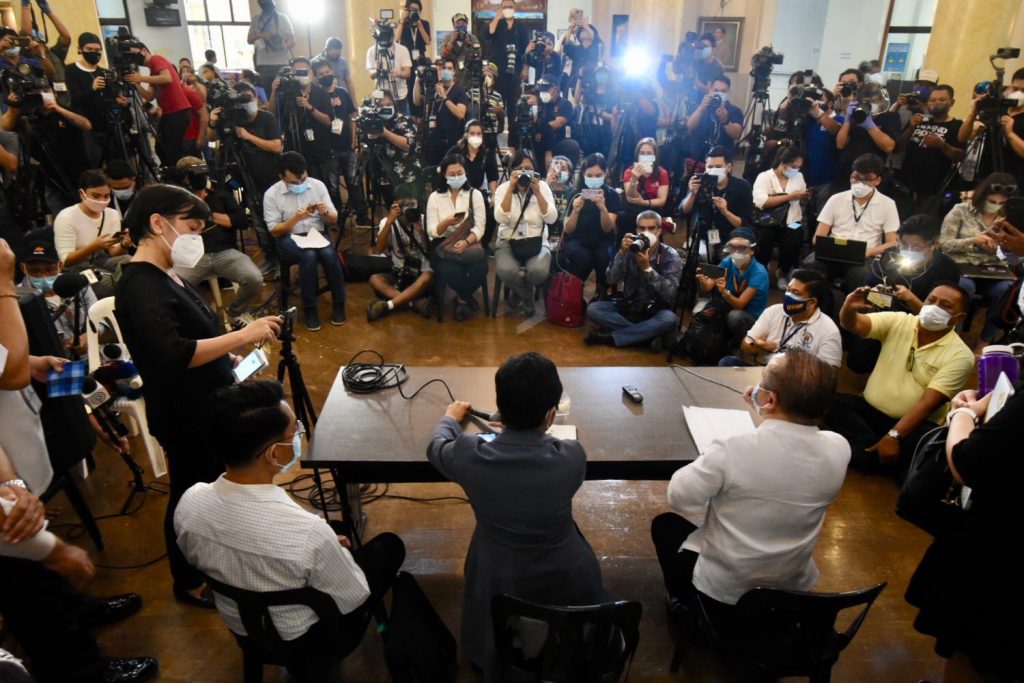
More disturbing is the fact that the regime seems to be exploiting the pandemic for what it’s worth in propaganda tactics: by restricting and forcing media to write one-source stories, mainly information gathered solely from government spin-doctors. It’s part of the superstructure of disinformation, given that permission from higher ups will have to first be granted before anyone talks to the press.
The danger of parroting government narrative in the media is greater now than before COVID-19 arrived. Recent rows between journalists on the issue of reporting puerile and ridiculous statements coming from government players may just the beginning of future “clashes” between the varying schools of thought within the newsroom.
On this matter, I still subscribe to what my friend and colleague, Inday Espina-Varona, said to me in an interview last year prior to the great debate:
“We are not stenographers nor voice recorders. Our task is to sift through words and actions of the powers-that-be and hold them accountable for and to these. Should we quote lies? Yes, but only by immediately pointing out the glaring contradictions, or omissions. Some government pronouncements are not actual lies but a twisting of narratives; here, too, journalists should be able to provide the right context or, at least, explain the context of two or more seemingly contradictory positions. Not tomorrow nor next week but with our first story [emphasis, mine].”
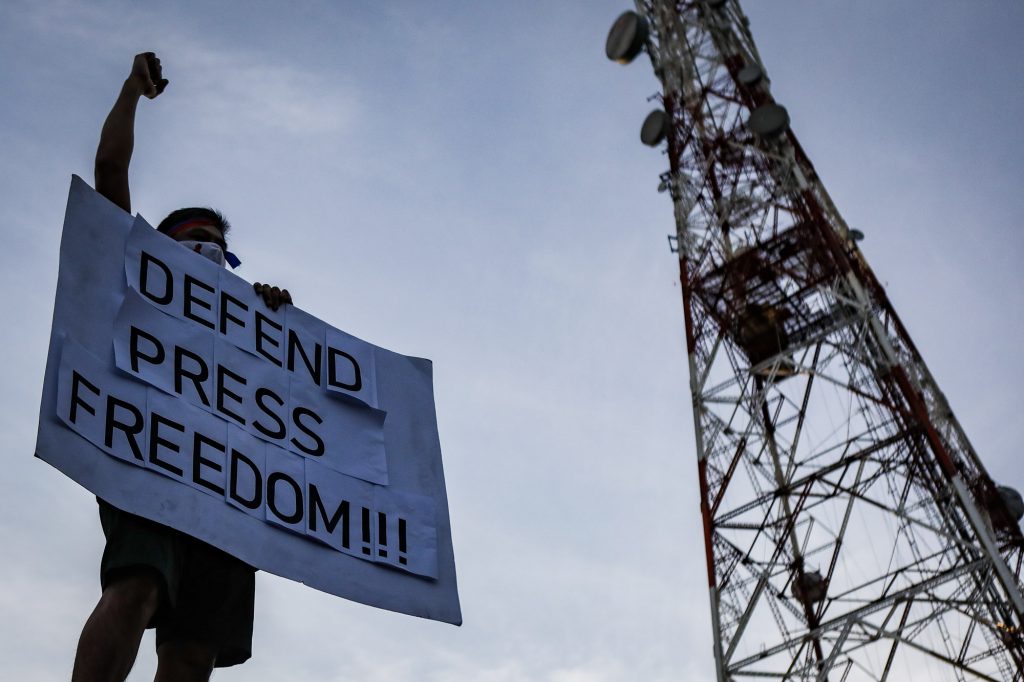
Press freedom five years down the road may have tilted from bad to worse. It is, however, crucial to the understanding of freedom of the press that no power, however fierce, bloodthirsty, and well-funded, can divorce press freedom from social justice.
Press freedom is social justice. It is the consciousness of the shared roots between ideas and words—a union which empowers people to mobilize and act for their wellbeing and collective interests.
It is one of the noblest rights affixed to a particular vocation—journalism—enough to take its place in the Constitution of free republics.
This is why journalists, regardless of the relentless persecution and threat on their lives and profession, have good reason to carry on the fight.
And fight we will.
Joel Pablo Salud is an editor, journalist and the author of several books of fiction and political nonfiction. He is currently the chair of the Philippine Center of International PEN’s Writers in Prison Committee. The views and opinions expressed in this article are those of the author and do not necessarily reflect the official editorial position of LiCAS.news.

